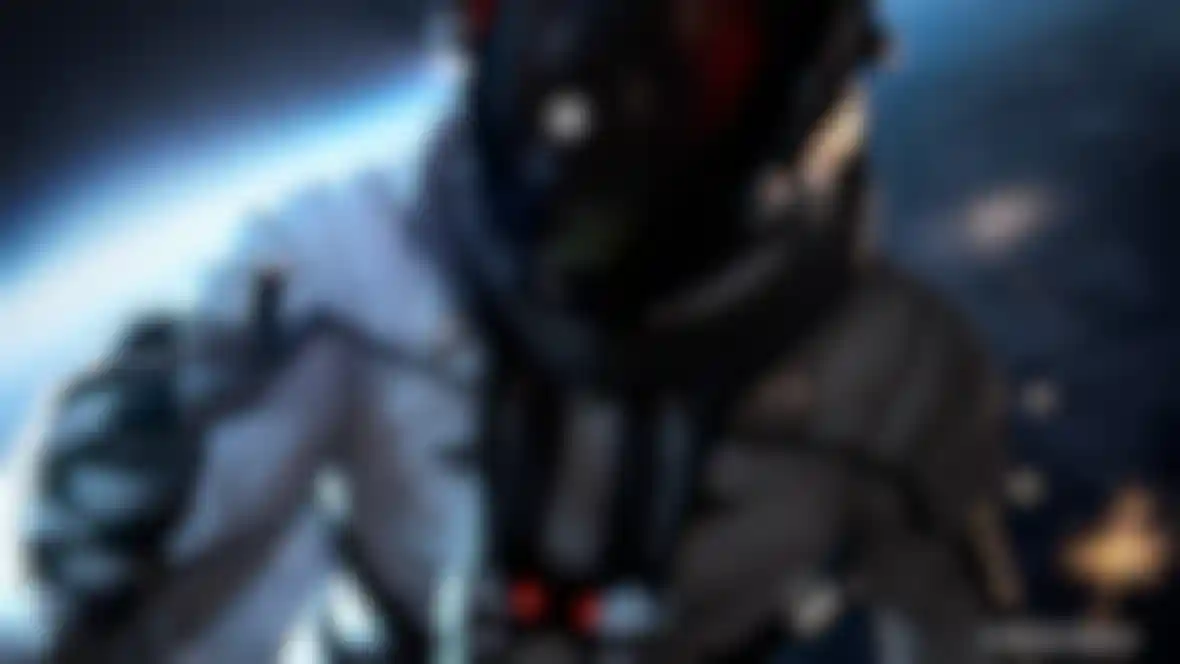
Already Been Chewed's Outer Space OpkixOne Spot Barton Damer on creating entertainment advertising for a wearable video camera.
Small, wearable devices designed for people who want to shoot and post all sorts of aspects of their lives to Instagram, YouTube and Snapchat have never quite caught on for one reason or another. But Opkix's new OpkixOne just might. Shaped much like a portable cellphone charger, the tiny, wireless, wearable video camera is meant to be fashionable, fun and easy to use.
To make sure their product launch was as attention-getting as their camera, Opkix chose Already Been Chewed to create a spot using Cinema 4D, After Effects, Houdini and Redshift that feels more like a short film than a sales pitch. "This was really fun to work on because it's what we call entertainment advertising, so it was a chance to create our own little movie," says ABC's founder and creative director, Barton Damer.
Here Damer offers more details on ABC's process for creating the OpkixOne spot.
What do you mean when you say something is entertainment advertising?
Barton Damer: I think it’s where you don’t have to show off a lot of product features or explain them. You’re really just trying to do something fun and entertaining that, in the end, hopefully makes people want to go check something out and maybe buy it. You have to have a lot of creative freedom to do this kind of project.
What kind of direction did you get from the start?
Damer: The creative director’s request was very open. He had an idea that there would be some kind of big bang-like thing in outer space and then their video camera would appear. We took that outer space theme, and knowing that this was a launch, we came up with the idea to have the spot start with something actually being launched. You see all the buttons and controls and take-off and at first it seems like it might be a space station or something. But then the astronaut grabs it, and you see how tiny it is. That’s when you can tell it’s a Bluetooth camera, and we show how you can remotely view what the camera sees from your cellphone by having the astronaut reach out and tap the camera at the end. It helped that the camera’s actual charger is kind of egg-shaped, so it worked well as a space pod for the camera to launch out of.
What really gave the spot it’s fun, kitschy feel was the soundtrack. We searched around a lot and, to our surprise, we found a royalty-free soundtrack that was perfect. It almost gave it a Guardians of the Galaxy vibe, which was great. They loved the spot, and it was probably one of the first projects we’ve worked on where the soundtrack was exactly what we wanted and we didn’t have to go out and license a song.
How did you make the astronaut so life-like?
Damer: We needed custom movements for this, so Thomas modeled the astronaut in ZBrush and finalized it in Cinema 4D. Then, our lead motion designer Bryan Talkish used C4D’s joint system to rig and weight the character. That allowed the astronaut to grab the video camera, look into it and move it around as needed.
Did ABC make everything for this in-house?
Damer: Yes, we modeled everything, including the astronaut and the dashboard and blast-off chamber in C4D. And we used C4D R20’s new Fields system for effects. It was so helpful because it allowed us to really blur the lines between motion graphics and visual effects. Fields has sparked a massive progression in the way we think about and approach animation. We’ve embraced combining Fields techniques with Redshift texturing, and we’re creating more and more shorts that I think of as 20- to 30-second movies.
It’s insane, really. Even three years ago we couldn’t do the kind of fun storytelling we can do now because of these tools. We also switched to GPU rendering and PCs a few years ago and that has made a huge difference, too. We literally look at each other and we’re thrilled, shocked and amazed by what we can pull off because of advancements in software.
Credits:
Studio: Already Been Chewe
Creative Director: Barton Damer
Account Manager: Donny Smith
Head of Production: Aaron Smock
Design: Thomas King, Bryan Talkish, Barton Damer
Animation: Bryan Talkish, Mark Fanche
Compositing: Aaron Smock






